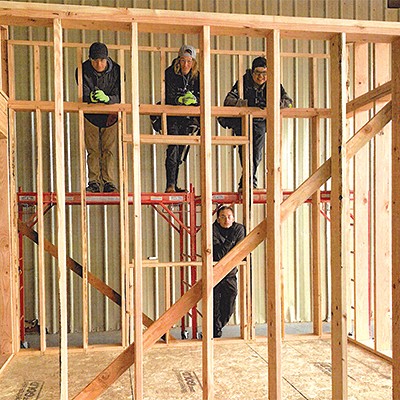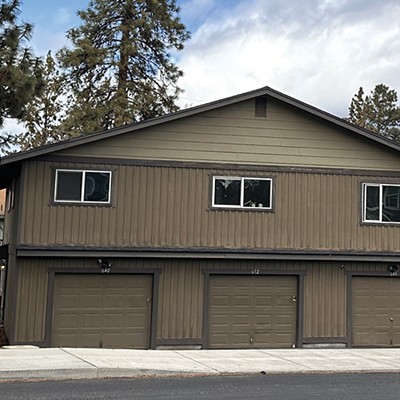Twenty-five years ago, what is now known by its shorthand as the "Spotted Owl debate" brought to a close an important chapter in the Pacific Northwest's history. In the afterglow of that debate, in 1994, the Clinton Administration adopted the Northwest Forest Plan, federal guidelines that provided more protections and considerations for long-term ecological health and also, in its aftermath, shut down thousands of jobs and shifted the region's economic epicenter toward decidedly more white collar employment like tourism, engineering and creative class jobs.
But that plan has evolved little since then, and what has never been fully resolved is a sustainable plan for managing the area's natural resources as well as its economies—and, more broadly, has left the tension between federal allowances and regulations, and local economies. In November, Sen. Ron Wyden walked into that Gordian Knot. As the Chair for Senate Committee on Agriculture, Nutrition and Forestry, the Oregon senator announced a plan to manage what is known as the "Oregon & California Railroad trust land," a checkerboard of 2.6 million acres of Bureau of Land Management property throughout 18 counties in Oregon and northern California. The agreement allows limited logging and, as part of the arrangement, contributes funds to many rural counties' coffers. How the proposed management of the O&C Railroad trust land unrolls will significantly affect Oregon's rural economy into the next generation.
But while it is admirable that Sen. Wyden has put forward a plan—and helped rekindle the debate—that so-called timber plan does not seem to be pleasing anyone, ourselves included. This week we give The Boot to the well-intentioned senator. While we have cheered his outspoken and bold stance that the NSA be more forthright with information about its surveillance programs, Sen. Wyden's timber plan fails to take that same sort of approach championing the "ordinary" resident or, for that matter, putting in place a forward-thinking blueprint to move forward natural resource management.
In Sunday's Oregonian, a Portland-based ecologist sounded off that the "plan goes too far," specifically taking issue with the proposal to more than double the current allowances of board feet that can be logged. Yet, while those are valid concerns, that opinion stands out as the exception rather than the more broad-based opinion that Wyden's plan does not go far enough in opening up the BLM lands for logging. One common complaint is that the plan, in spite of its 180 pages of notes, is not detailed enough and, even more common, is the argument from the region's logging companies that have survived the last generation of regulations, that they have overhauled production procedures and can sustainably harvest more board feet.
But, while the primary debate focuses on board feet and review processes, what is also important to note is that Wyden's plan fails to truly reframe the argument over natural resources, and to pull the debate into the 21st century, and to consider even more fundamental interests for Oregon—and, for that matter, western states.
More than fifty percent of acreage in western states in controlled by the federal government, compared to a scant eight percent in most midwest and eastern states. In Deschutes County, two out of three acres are "owned" by the federal government. That "arrangement" is a hangover from 19th century expansion when the federal government was rapidly trying to encourage settlers to relocate, while not conceding complete financial advantages over the ripe natural resources—and, it is an idea that begs to be challenged in the 21st century. The O&C Lands are particularly unique; they are leftover property owned by a failed railroad that, in turn, ceded to the federal government, but only with the agreement that about half the logging proceeds would go to the counties. That agreement is particularly dated.
In conducting business-as-usual, Wyden has failed to break away from the 19th century mentality of federal ownership of western states. He has fallen short for advocating for more local ownership—surely a concept that both progressives and conservatives can agree on. But most of all, he has centered the debate in terms and considerations that are far past due to be challenged.


























